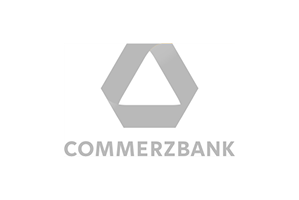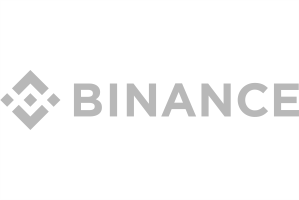License for a crypto exchange in Malta – A promising entry into the EU market
Malta has established itself as a leading European jurisdiction for the regulation of cryptocurrencies and digital assets. With its crypto-friendly approach and advanced legal and financial systems, the country sets regulatory standards that other nations look to follow.
By obtaining a cryptocurrency exchange license in Malta, a company can legally offer a wide range of services related to virtual assets, including cryptocurrency exchange and wallet management, while being supervised by the financial regulator.
The license provides access to the European Union market, ensures legal certainty, and allows companies to grow flexibly while maintaining security and transparency standards.
The application procedure is relatively straightforward, but the regulator strictly verifies compliance with requirements related to share capital, security measures, and internal compliance in order to ensure the protection of client assets and the integrity of crypto operations.
Key features:
- Official authorization from the regulator to conduct cryptocurrency activities in full compliance with the law.
- A comprehensive license covering crypto exchange, wallet management, and other virtual asset services.
- Access to a developed banking infrastructure, including special accounts for crypto companies.
- A stable legal system with enhanced anti-money laundering (AML) measures and KYC requirements.
- Conditions that support innovation and scaling for crypto companies, while maintaining regulatory oversight.
A cryptocurrency license in Malta is a strategic asset for companies seeking to establish themselves as reliable and regulated providers of crypto services in one of Europe’s most reputable jurisdictions.
Types of activities covered by a crypto license in Malta
The Maltese crypto license covers a wide range of operations involving cryptocurrencies and virtual assets, making it one of the most flexible in Europe. A company holding this license can offer various services under strict regulatory oversight, security requirements, and compliance standards.
Permitted activities:
- Cryptocurrency exchange operations: Setting up a platform for clients to buy, sell, and exchange digital currencies.
- Wallet services: Providing custodial services and secure storage of virtual assets.
- Crypto asset exchange and token issuance – in compliance with Maltese legislation.
- Brokerage services and OTC (over-the-counter) trading for retail and institutional clients.
- Management of virtual asset transactions and provision of crypto payment options.
- Operation of a digital platform for the exchange and transfer of virtual currencies.
- Advisory and financial services in the field of cryptocurrencies – within the scope of the license.
When submitting an application, a company is required to specify which crypto services and types of activities it intends to carry out. The authorities demand supporting documentation, including:
- a business plan,
- a security plan,
- a compliance and anti-money laundering (AML) program, as well as a plan for fulfilling financial obligations.
The Malta Financial Services Authority (MFSA) exercises continuous oversight over all licensed companies. This includes:
- regular audits,
- mandatory reporting,
- monitoring compliance with standards of transparency, security, and client protection.
Malta’s robust regulatory system enhances trust in license holders and adds further legitimacy to their activities in the cryptocurrency market.
What a license in Malta provides: Advantages and opportunities
Malta offers particularly attractive conditions for companies seeking to legalize their cryptocurrency-related activities. Thanks to its well-designed approach to digital asset regulation and its reputation as the “Blockchain Island,” the country provides one of the most advanced legal frameworks in Europe, ensuring compliance, investor protection, and the growth of the crypto business.
Key advantages:
1. Robust legal and regulatory framework
Malta has developed one of the most comprehensive legal systems for regulating crypto assets in Europe, fully aligned with the new EU rules (MiCA). The Malta Financial Services Authority (MFSA) exercises strict supervision over compliance, security, and the financial health of license holders.
2. Wide range of permitted activities
The license covers all major cryptocurrency services: exchanges, wallets, token issuance, brokerage services, and more. This provides companies with flexibility to build and scale various business models.
3. Favorable tax environment
Malta offers some of the most competitive corporate tax rates in Europe, along with clearly regulated standards for international tax agreements.
4. Access to the International Banking System
Holding a license facilitates access to Maltese and international banks, supporting smoother fiat-to-crypto transactions and use of banking services.
5. Strategic EU location
As a member of the European Union, Malta allows licensed entities to use the passporting mechanism, meaning they can provide regulated services across the EU without needing separate authorizations in each country.
6. Culture of compliance and security
Obtaining a cryptocurrency license requires strict adherence to AML (Anti-Money Laundering) and KYC (Know Your Customer) standards, which enhances transparency and builds trust in the crypto industry.
7. Transparent and structured licensing process
The application process is well-organized, with clear requirements for documentation, fees, and timelines. This makes obtaining a cryptocurrency license predictable and straightforward.
Thanks to the combination of regulatory clarity, government support, and high compliance standards, Malta enables companies to build a scalable and legitimate crypto business within the EU and beyond.
Prifinance’s legal team supports the process at every stage: from initial readiness assessment to proper application preparation, form completion, communication with the MFSA, and minimizing delays. We help promptly resolve any documentation issues, meet deadlines, and ensure transparent interaction with the regulator – all of which is crucial for expedited application review.
Comparison of the Maltese crypto license with other jurisdictions
When choosing a jurisdiction for obtaining a cryptocurrency license, it is essential to consider a combination of factors. Malta offers a well-balanced mix of regulation, tax regime, and access to European Union markets.
| Jurisdiction | License type | Regulatory authority | Taxation | Setup time | Market access | Access to banking services | Regulatory burden |
| Malta | VFA | MFSA | Competitive | 3–6 months | EU (passporting) | Good | Moderate |
| EU (General) | MiCA | National Regulators | 15–25% | 3–6 months | EU | Varies | High |
| UK | FCA Registration | FCA | 19% | 4–8 months | UK and limited EEA | Good | High |
| Singapore | Major Payment Institution | MAS | 17% | 4–6 months | Asia-Pacific Region | Complex | High |
| USA | MSB & State Licenses | FinCEN & State Regulators | 21% + state taxes | 6–12 months | US only | Difficult | Very High |
| Offshore | Various | Local Authorities | 0% | 1–3 months | Limited | Often limited | Low |
Key points:
- Transparent regulation and EU market access
A cryptocurrency license in Malta provides clear legal regulation and the ability to operate within the European Union – advantages not available in offshore jurisdictions.
- Unified regulatory system
Unlike the fragmented regulatory framework in the U.S., Malta operates under a unified regime for Virtual Financial Assets (VFA), simplifying compliance and oversight.
- Favorable taxation
Malta’s tax policy is generally more advantageous than that of the UK and most EU countries, making it attractive for business structuring.
- Improved access to banking services
Access to banking in Malta is significantly better than in many offshore jurisdictions, reducing operational risks.
- Lower regulatory burden
Overall, the regulatory burden in Malta is lighter than in high-demand, tightly regulated markets such as the UK, Singapore, or the U.S.
For companies seeking to operate legally in Europe within a clear and business-friendly environment, obtaining a crypto license in Malta is an excellent solution – offering a strong competitive advantage over other jurisdictions.
Requirements for obtaining a crypto license in Malta
To obtain a cryptocurrency license, a company must meet a set of clearly defined regulatory, financial, and operational requirements established by the Malta Financial Services Authority (MFSA).
The licensing procedure is designed to verify the company’s readiness to comply with the provisions of the Virtual Financial Assets (VFA) Regulation, as well as meet EU-level obligations under the MiCA regulation.
| Requirement | Description |
| Company registration | Incorporation of a Maltese company in compliance with local company laws, with a clear ownership and management structure. |
| Capital requirements | Minimum required share capital typically starts at €120,000, depending on the license class and type of activities. |
| Compliance program | Comprehensive AML/CFT policies, ongoing risk assessments, and appointment of a designated Compliance Officer. |
| Fit and proper directors | Appointment of qualified and experienced directors and key personnel with relevant backgrounds. |
| Operational infrastructure | Adequate IT systems, cybersecurity protocols, and secure arrangements for safeguarding client assets. |
| Detailed business plan | Submission of a solid business plan outlining services, market strategy, risk controls, and growth plans. |
| Office and presence | Physical office presence in Malta and sufficient local substance as required by the MFSA. |
| Application documentation | Complete documentation including corporate records, financial projections, and compliance manuals. |
| Regulatory reporting | Ongoing reporting obligations, audits, and transparency requirements with the MFSA. |
| Fees and payments | Payment of registration fees, licensing fees, and annual renewal fees in accordance with MFSA guidelines. |
Additional conditions
When submitting an application, several additional requirements set by the regulator must be taken into account:
- Clear description of planned virtual asset services
The application must precisely indicate which services will be provided, such as: exchange, custody, wallet services, token issuance, etc.
- Proof of governance and internal control systems
The company must demonstrate a stable governance and internal control framework that ensures operational security and investor protection.
- Fit and proper checks for key individuals
Background checks and due diligence will be conducted on all shareholders, directors, and key personnel involved in the company’s operations.
Registration of a crypto company in Malta: Process and timeline
The procedure for obtaining a cryptocurrency license in Malta is structured and multi-stage. It is designed to ensure that companies comply with high regulatory standards, safeguard investors, and contribute to the development of a transparent and secure crypto market.
Licensing stages:
Stage 1. Pre-licensing consultation
- Conducting a consultation with the Malta Financial Services Authority (MFSA) to obtain preliminary clarifications.
- Confirming the specific types of virtual asset services the applicant intends to provide.
- Receiving initial feedback on the business model and compliance structure details.
Stage 2. Company registration and document preparation
- Establishing a Maltese company (if not already registered).
- Preparing a complete set of documents: business plan, AML policy, IT security policy, and relevant internal procedures.
Stage 3. Submission of the official application
- Submitting the licensed application to the MFSA and paying all applicable fees.
- Providing all necessary information about directors, shareholders, and ultimate beneficial owners.
- Attaching financial forecasts, risk assessments, and internal company procedures.
Stage 4. Review and analysis by MFSA
- MFSA conducts a full review of all submitted documentation.
- Interviews with directors and key company personnel may be scheduled.
- The regulator has the right to request additional information from the owner or company management.
Stage 5. Issuance
- Upon fulfillment of all requirements, MFSA issues the cryptocurrency license.
- From this point on, the company is legally authorized to provide cryptocurrency exchange, wallet management, and other virtual asset services within the country.
Stage 6. Post-issuance obligations
- The company must continue to comply with all AML/CFT requirements, and submit regular audit and financial reports.
- It must also maintain ongoing communication with the regulator and notify it of any significant changes in company operations.
Timeline:
| Stage | Duration |
| Pre-licensing consultation | 2–4 weeks |
| Company registration & document preparation | 4–8 weeks |
| Application review | 3–6 months |
| Issuance | Upon approval |
| Total time | Approximately 5–9 months |
Key factors:
- Processing time depends on application completeness
The duration of the licensing process directly depends on how complete and accurately prepared the application is, as well as on the speed of the company’s responses and document submissions.
- Having a ready compliance structure speeds up the process
Companies with an already established and regulation-compliant compliance framework, along with a well-defined business model, typically go through the approval process significantly faster.
- Mandatory fees and annual payments apply
The MFSA charges fees for application submission and processing, as well as annual licensing fees to maintain an active crypto license.
The Prifinance team provides comprehensive support at all stages of obtaining a cryptocurrency license – from selecting the optimal corporate structure to preparing documentation, communicating with the MFSA, assisting in interviews, and ensuring full compliance with AML, KYC, and MiCA requirements. With extensive experience and deep knowledge of Malta’s regulatory practices, we help reduce licensing timeframes and minimize regulatory risks.
Taxation of companies with a cryptocurrency license in Malta
Malta offers an attractive tax regime for companies obtaining a crypto license, making it one of the preferred jurisdictions for cryptocurrency exchanges and other virtual asset service providers.
Malta’s tax system is competitive and transparent, allowing companies to efficiently structure their financial operations while fully complying with both local and international regulations.
| Tax type | Rate / description | Notes |
| Corporate income tax | 35% standard rate, with effective rates as low as ~5% | Due to the full imputation system and tax refund mechanisms |
| Value added tax (VAT) | 18% standard rate | Generally not applicable to most cryptocurrency transactions |
| Withholding tax | 0% on dividends and interest | No withholding tax on outbound payments |
| Capital gains tax | 0% for most cryptocurrency trading activities | Long-term holding of crypto is not subject to capital gains tax |
| Stamp duty | Minimal for certain transactions | Mainly applies to real estate, not crypto assets |
Advantages of the tax system:
- Reduced effective tax rates
The nominal corporate tax rate is 35%, but due to Malta’s system of tax credits and refunds, the effective tax burden on shareholders can be reduced to around 5% upon distribution of dividends.
- No VAT on cryptocurrency services
Most fees and charges related to crypto exchange and virtual asset services are exempt from VAT, simplifying tax compliance.
- No capital gains tax
Profits from crypto trading and exchange operations are generally not subject to capital gains tax, especially for long-term holdings.
- Transparent and stable tax framework
Malta’s tax legislation is straightforward, aligned with EU directives, and provides strong legal certainty for foreign investors and crypto companies, reducing personal liability for business owners.
- Network of double taxation treaties
Malta has a wide range of international tax treaties, which help reduce withholding taxes on profit repatriation and offer benefits in cases of double taxation.
Tax reporting and compliance
- Annual tax return
Every registered company is required to file an annual tax return, following Malta’s national accounting standards.
- Audit
To ensure transparency and regulatory compliance (including with the MFSA), companies must undergo regular audits.
- Record-keeping
Companies must maintain detailed records of all transactions, capital flows, and client accounts for both regulatory and tax control purposes.
Key facts about obtaining a crypto license in Malta
The table below presents key information about obtaining a cryptocurrency license: regulatory requirements, permitted types of activities, tax burden, licensing stages, and post-licensing compliance conditions. This overview helps to quickly assess the potential of the jurisdiction and understand its specifics.
| Category | Description |
| Regulator | Malta Financial Services Authority (MFSA) |
| Legal framework | Virtual Financial Assets (VFA) Regulation, MiCA compliant |
| Company form | Registration of a Maltese company required |
| Types of permitted services | Cryptocurrency exchange, custody services, crypto wallets, token issuance, brokerage, OTC trading, payment solutions, consulting |
| Licensing process | 6 stages: consultation with MFSA → company registration → application submission → review and due diligence → issuance → post-licensing supervision |
| Timeframe | Depends on application completeness and company’s responsiveness; companies with a ready compliance structure receive the license faster |
| Role of Prifinance | Full support: from application and business documentation preparation to communication with MFSA and post-licensing assistance |
| Requirements | Business plan, AML/KYC policies, IT security, internal procedures, background checks on directors and beneficial owners |
| Post-license supervision | Regular audits, reporting, AML/CFT compliance, communication with the regulator |
| Taxes | Effective rate ~5% on dividends, no capital gains tax, no VAT on crypto services |
| Reporting | Annual tax return, audit, detailed recordkeeping on operations and clients |
| EU market access | Yes, through passporting mechanism |
| Access to banking services | Developed banking infrastructure, including accounts suitable for crypto companies |
Experts trusted in licensing
Obtaining a cryptocurrency license requires precision, a professional approach, and deep understanding of regulatory requirements. The Prifinance team includes experienced lawyers, financial analysts, and compliance specialists who support projects at every stage – from consultations to successful licensing and post-issuance interaction with the regulator.
Our staff are highly qualified, have many years of experience in the field of virtual asset regulation, and are well-versed in MFSA requirements, the provisions of the VFA Regulation, and MiCA standards. Thanks to this, we provide reliable legal and organizational support for every client.

Nikolai Timofejev Expert with 15 years of experience in FinTech, payments, and business strategy.

Oleksii Kindratenko Expert in company registration, financial licenses, AML and tax consulting.

Eugeniu Bevziuc International business consultant with experience in company setup, remote work, and multilingual communication.
Your business deserves legal status – Entrust the cryptocurrency license process to professionals
Submit an application
FAQ
1. What is a crypto license in Malta and who issues it?
A cryptocurrency license in Malta is an official authorization issued by the Malta Financial Services Authority (MFSA), allowing a company to legally conduct cryptocurrency exchange, virtual asset trading, wallet services, and other crypto-related activities.
2. What activities does the Maltese crypto license cover?
The license covers a wide range of services, including: crypto exchange, brokerage services, wallets, token issuance, and virtual asset trading platforms.
3. How long does it take to obtain a crypto license?
The process usually takes between 6 to 12 months, depending on the complexity of the application, the completeness of submitted documents, and the MFSA’s review timeline.
4. What are the minimum capital requirements?
The minimum capital depends on the type of license and starts from €730,000. These funds are required to ensure the company’s financial stability.
5. Can a foreign investor own a licensed crypto company in Malta?
Yes, 100% foreign ownership of crypto companies is allowed, enabling international investors to scale their businesses.
6. What compliance obligations apply after licensing?
Holders must maintain proper AML/KYC procedures, undergo regular audits, monitor operations and activities, and submit periodic reports to the MFSA.
7. Is the Maltese cryptocurrency license recognized internationally?
Yes, it has a strong reputation within the EU and beyond, and provides access to the European market under the MiCA regulation.
8. What fees are required for obtaining and maintaining the license?
These include the application fee, annual supervisory fees, and possible additional charges, depending on the license type and services offered.
9. Are there restrictions on types of cryptocurrencies or tokens?
The MFSA regulates token circulation based on their characteristics. Companies must disclose the purpose and nature of tokens (e.g., utility, security, etc.).
10. What are the consequences of operating without a license?
Providing crypto services without a license is illegal. It can lead to hefty fines, legal consequences, and business closure.









